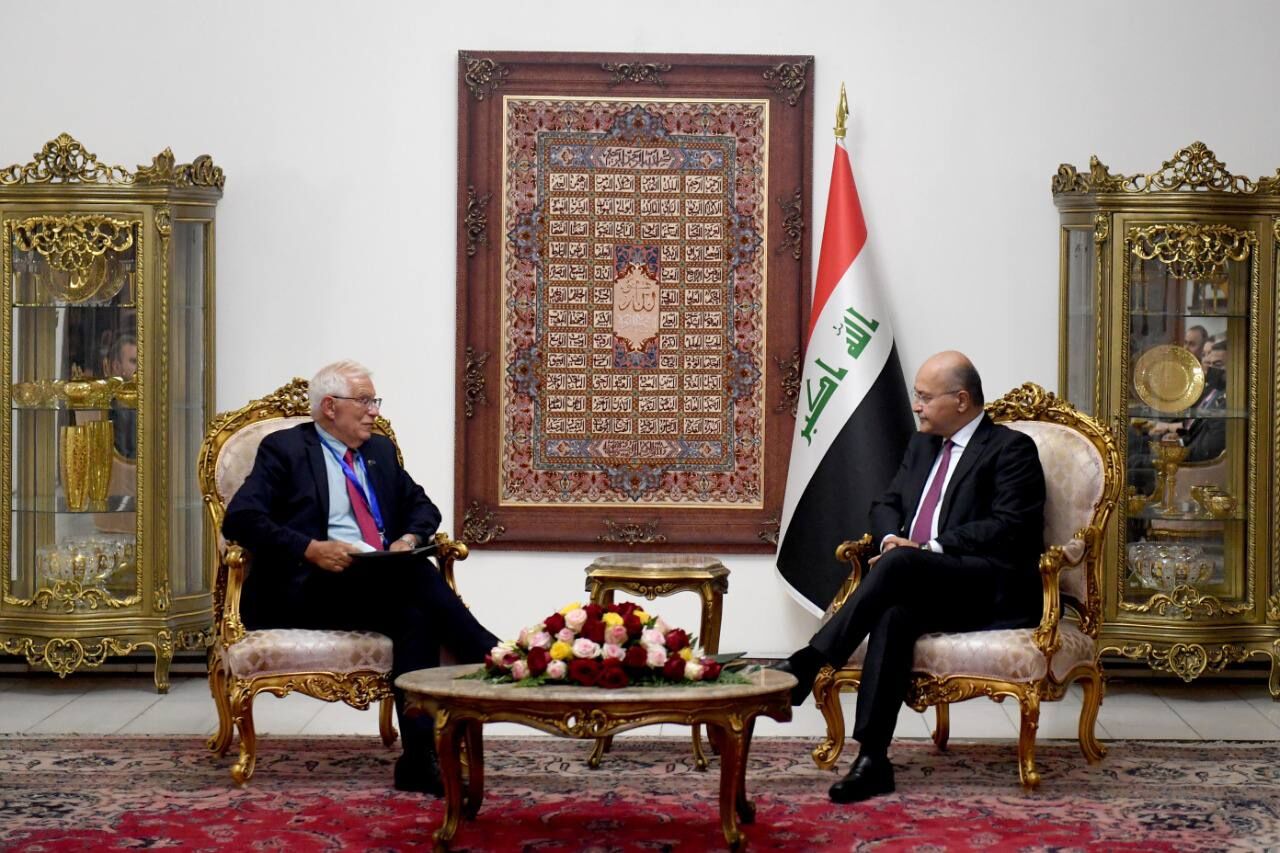Morteza Makki in an interview with the site of the Strategic Council for Foreign Relations stated:” Middle East region is one of the crisis centerpieces in the world the consequences of which impress the European Union”.
He mentioned the presence of the Western forces in the region and said:” Despite the extensive military presence of the U.S. and many NATO members during the past two decades, we witnessed not only the de-escalation of tension and crisis in the region but also the presence caused the intensification of crisis and escalation of tension in the region”.
Makki also said:” in-coordinated and hasty withdrawal of the U.S. military forces from Afghanistan which is considered as a major prestigious failure for Washington, was a heavy blow to the European Union too, because the exit quickened Taliban to capture many cities of Afghanistan which ultimately led to the fall of Ashraf Ghaani’s government. This, in turn, was a source of concern to Europe because in its first trans-continental mission, NATO suffered from a heavy failure. After two decades of presence in Afghanistan, they were in the same place as the day one of their first presence in 2001”.
The expert continued:” Now, the Europeans are making efforts to play an active role in the management of regional tensions through counselling in the region”.
He also believes that such shuttle diplomacy is not irrelevant to the revival of Joint Comprehensive Plan of Action (commonly known as JCPOA) because JCPOA implementation can also be very effective for the EU activism in the region. They are hopeful to play a role in the management of the regional crises in this way”.
He added:” It must be noted that the European countries lack the hard power backing. That’s why they try to employ their soft power and the same role they have in dealing with the world political and economic developments by assuming an active role in the region”.
Having answered whether Europe wanted to fill the vacuum of the U.S. absence in the region, Makki explained:” It goes without saying that the Europeans are willing to fill the vacuum of the U.S. presence in the region but as the Europeans lack a common foreign and security policy and there are many differences of opinion among 27 member of the EU in this field, they can’t be very hopeful to fill the vacuum of the U.S. presence in the region in this way”.
The expert continued:” That’s why European countries try to play a more active and effective role through revival of JCPOA, political counselling in the region and de-escalation of tension among the countries of the region”.
He continued to mention that the consequences of any crisis in the Middle East region and Persian Gulf will affect European countries. He said:” therefore, they endeavor to have a bold role in their relations with the regional countries and strengthen their political and economic relations with these countries”.
He explained: “the presence of the French President Emanuel macron in Baghdad meeting showed that they are very interested in defining a new picture of France in particular and Europe in general for the countries of the region. Thus, to show their high desire to fill the vacuum of the U.S. presence and to promote their cooperation with the regional countries”.
The expert on European affairs replying the question: Whether the European efforts may turn to be anti-Iranian, said:” Anyway, the Europeans have allies in the region, some of whom are sworn enemies of Iran. Among the most important allies of the European countries are Zionist regime, Saudi Arabia and United Arab Emirates, whose interests contradict seriously with those of Iran”.
He continued:” Despite all said issues, JCPOA showed to all European countries that Islamic Republic of Iran is a country that can’t be ignored. As the result, they endeavor to put forward within the framework of Non- Proliferation Treaty (NPT) other issues in their relations with Iran and as they believe, to contain Iran’s power or make a regional balance. Thus, to both manage Iran’s power and influence in the region, and play an effective role in deescalating trend of tension in the region”.
On the difference between the U.S. and the European policies in the region, Makki said:” As mentioned earlier, contrary to the U.S., the European countries are looking for de-escalation of tension among the regional countries, because they know well to what extent the escalation of crisis and tension in the region could be detrimental to them and could bring security consequences for them”.
Having referred to the point that the European governments will make effort to have balanced policy in the region, the expert said finally:” The approach of Brussels could be an opportunity for the Islamic Republic of Iran to both disentangle herself from the sanctions burden and to show a better image of her role and influence in securing stability and security of the region to European governments”.










0 Comments